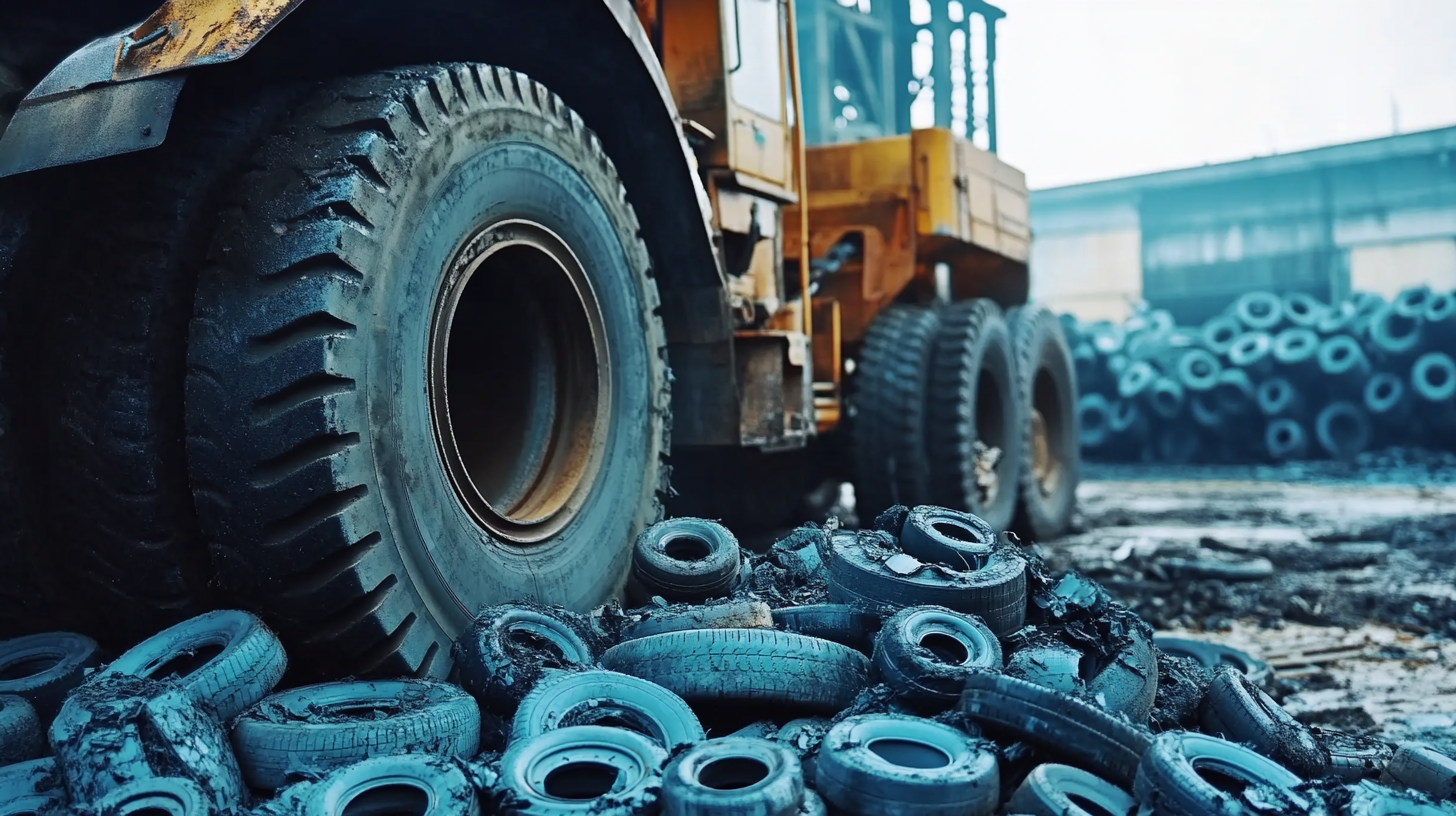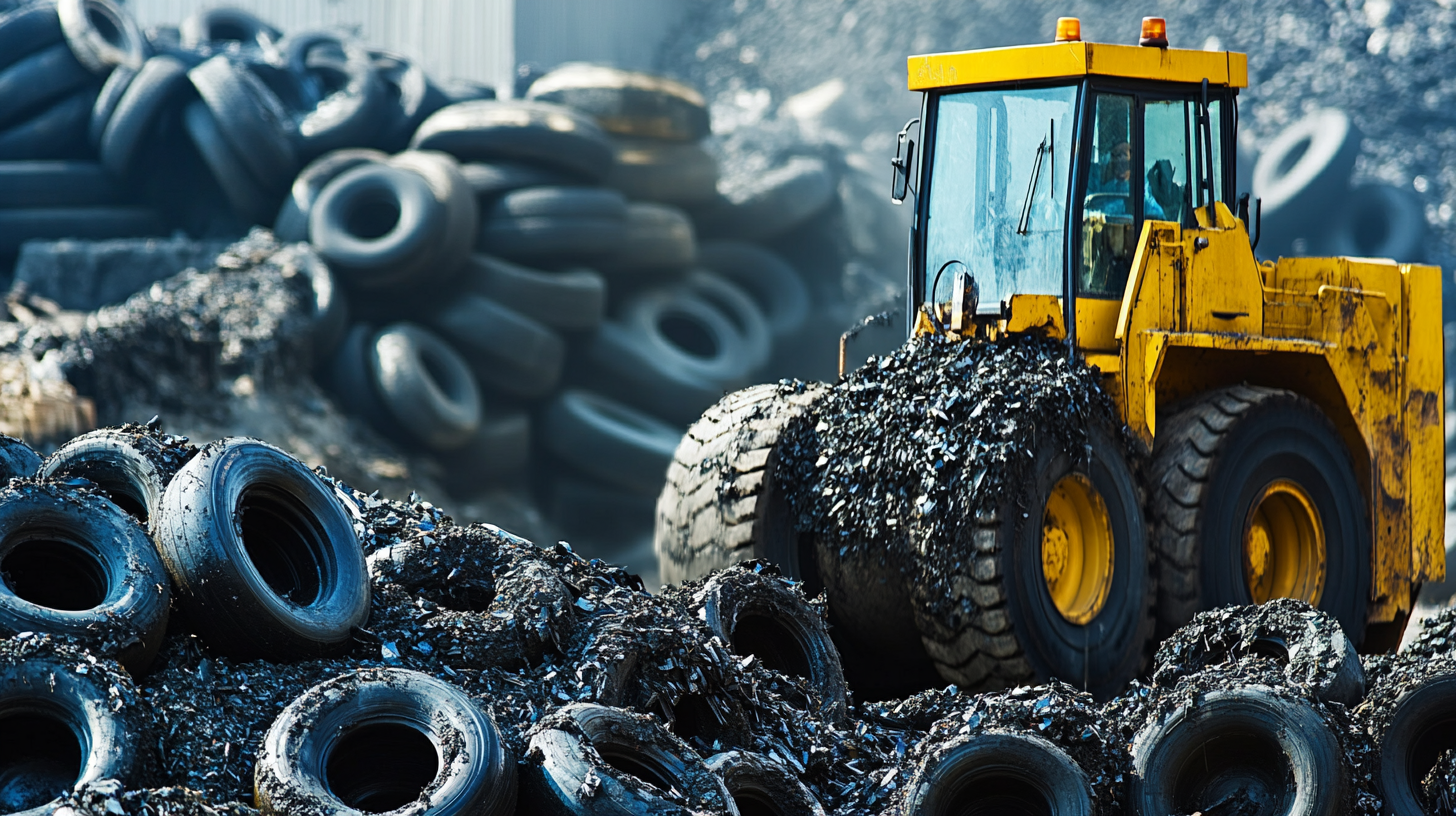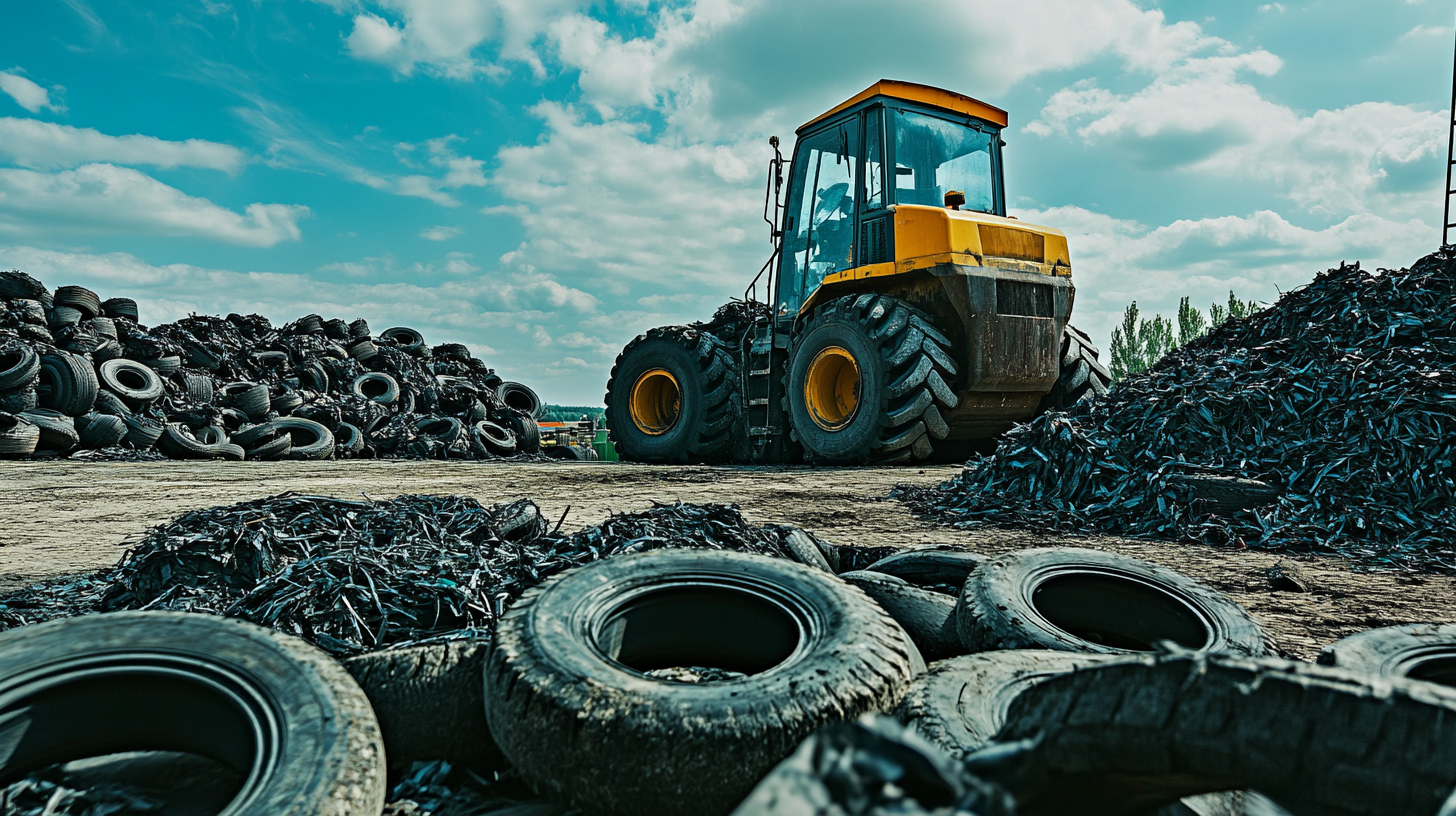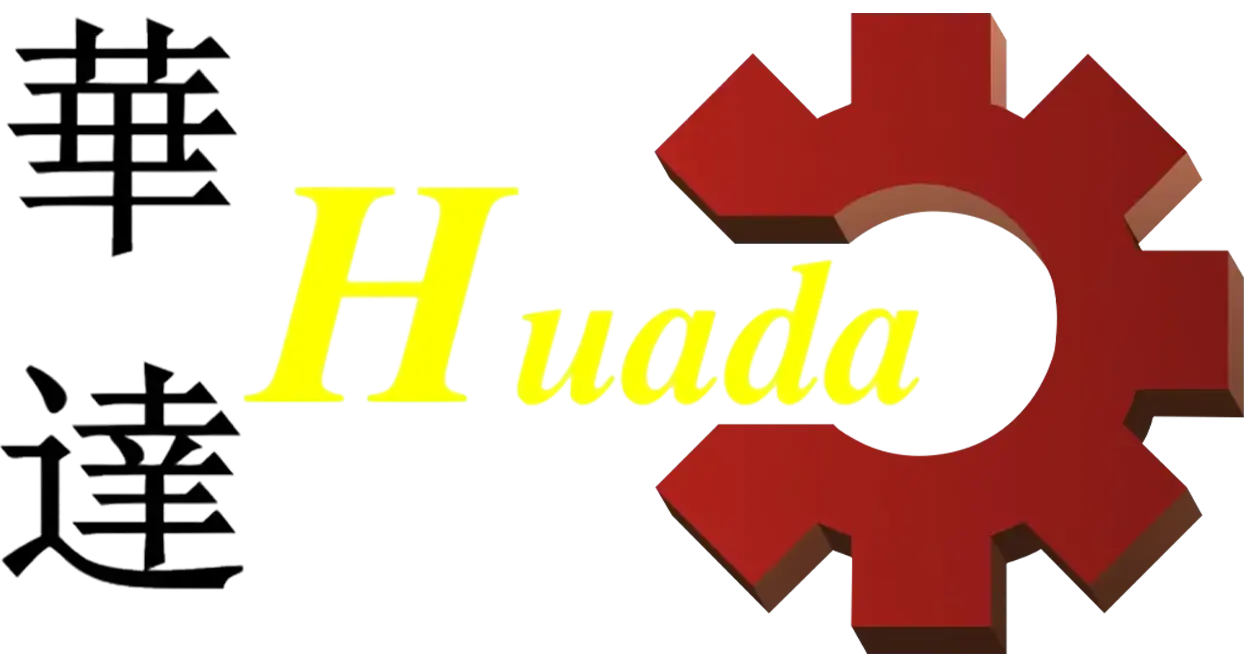In an era where the global trade landscape is rapidly evolving, the significance of import-export certifications cannot be overstated, particularly for specialized machinery such as the Tyre Shredding Machine. According to a recent report by Market Research Future, the global tyre recycling market is projected to reach USD 9.82 billion by 2026, with the demand for efficient tyre shredding solutions being a crucial contributing factor. As industries increasingly focus on sustainable practices and waste management, the role of certified equipment becomes paramount to ensure compliance with international standards. Import-export certifications not only facilitate smoother cross-border transactions but also affirm that the Tyre Shredding Machines meet rigorous safety and performance benchmarks. As manufacturers and distributors navigate the complexities of global trade, understanding the importance of these certifications is essential to capitalize on the burgeoning market opportunities while maintaining quality and reliability.

In the global landscape of tyre shredding machines, import-export certifications play a critical role in enhancing the legitimacy and trustworthiness of products. These certifications not only ensure compliance with international standards but also reassure buyers about the quality and safety of the machines they are acquiring. As businesses navigate the complexities of global trade, possessing proper certifications can significantly boost export opportunities, attracting more clients who demand reliable and eco-friendly solutions.
Recent discussions around waste tyre management, particularly the growing crisis in India fueled by UK’s waste tyres, underscore the necessity of these certifications. Without stringent guidelines and a clear duty of care from the exporting countries, the risk of mishandling and improper recycling processes increases dramatically. Import-export certifications can serve as a regulatory benchmark, facilitating responsible trade practices and ensuring that only environmentally sound machines are involved in the recycling process. By prioritizing certified imports and exports, we can work towards resolving the pressing issues linked to tyre waste and contribute to a more sustainable future in tyre recycling.
The following chart illustrates the exports of tyre shredding machines categorized by certification status. The data reflects the significance of import-export certifications in enhancing international trade for these machines over the past five years.
In the realm of global trade, adhering to quality standards is pivotal, especially in the tyre shredding machine industry. A recent report from MarketsandMarkets indicates that the tyre recycling market is projected to grow from $7.5 billion in 2021 to $11.4 billion by 2026, highlighting an increasing demand for efficient, high-quality machinery. These figures underscore the necessity for import-export certifications that not only validate the machine's efficacy but also ensure compliance with international quality benchmarks.
Furthermore, certifications such as ISO 9001 and CE marking play a crucial role in enhancing product credibility and market competitiveness. According to a survey published by the International Trade Centre, 70% of businesses reported that having recognized certifications improved their access to global markets. This trend for tyre shredding machines emphasizes that manufacturers must prioritize obtaining these certifications, as they not only reassure customers of the product's safety and reliability but also facilitate smoother transactions across borders, making adherence to quality standards a key factor in driving business success.
| Certification Type | Issuing Organization | Region | Validity Period | Importance for Trade |
|---|---|---|---|---|
| ISO 9001 | International Organization for Standardization | Global | 3 years | Ensures quality management system |
| CE Marking | European Union | Europe | N/A | Conformity with health, safety, and environmental protection standards |
| EPA certification | Environmental Protection Agency | United States | N/A | Regulatory compliance for environmental standards |
| RoHS | European Union | Europe | N/A | Restriction of hazardous substances in electrical and electronic equipment |
| TÜV | Technical Inspection Association | Germany | 1 year | Independent testing for product safety and quality |
In the growing global economy, the significance of import-export certifications cannot be overstated, especially for industries like tyre shredding. Chinese manufacturers have developed exceptional capabilities in navigating the import-export certification landscape, leveraging their enhanced innovation potential. According to a recent report, over 70% of Chinese manufacturing firms are actively improving their certification processes, which boosts their competitiveness in global markets.
China's transformation into a hub for advanced industries is also reflected in its ability to meet international standards. Data indicates that certified products from China have seen a 30% increase in export rates, particularly in sectors such as recycling and waste management. This trend is fueled by the country's commitment to innovation, evidenced by a surge in patent filings related to tyre shredding technology, which have quadrupled in recent years. As these manufacturers continue to excel in certification processes, they not only contribute to their own growth but also enhance the overall standards of the global industry.
In the realm of global trade, compliance with regulations is not merely a legal obligation but a strategic advantage, especially for manufacturers of tyre shredding machines. Obtaining the appropriate import-export certifications ensures that products meet international standards, thereby enhancing credibility with international partners. This commitment to compliance can significantly broaden market access, as many countries require such certifications before allowing foreign machinery to enter their borders.
Furthermore, adhering to global trade regulations can lead to cost savings and operational efficiencies. Manufacturers can avoid potential tariffs, fines, and delays associated with non-compliance, which can be particularly detrimental in the highly competitive sector of tyre recycling. By aligning with safety and environmental standards, companies also contribute to sustainability efforts, attracting eco-conscious clients and improving their overall marketability. Together, these benefits underline the importance of import-export certifications for tyre shredding machines in navigating the complexities of global trade.

In the competitive landscape of global trade, securing the right import-export certifications is crucial for businesses, particularly in sectors such as tire shredding machinery. For companies in China looking to enhance their export competitiveness, understanding and leveraging these certifications can be a game changer. Certifications can serve as a quality assurance signal to international buyers, indicating that products not only meet local standards but also align with international expectations.

One effective strategy is to proactively pursue certifications that are recognized globally, such as ISO standards. These certifications not only boost credibility but also open doors to new markets. Furthermore, engaging with certification bodies early in the product development process can streamline compliance and reduce bottlenecks that may delay time-to-market.
Tips for success include conducting thorough market research to identify which certifications are most valued in target markets. Additionally, consider investing in training for employees that highlights the importance of these certifications, fostering a culture of quality that resonates throughout the organization. By prioritizing these steps, companies can create a solid foundation for successful international trade.
